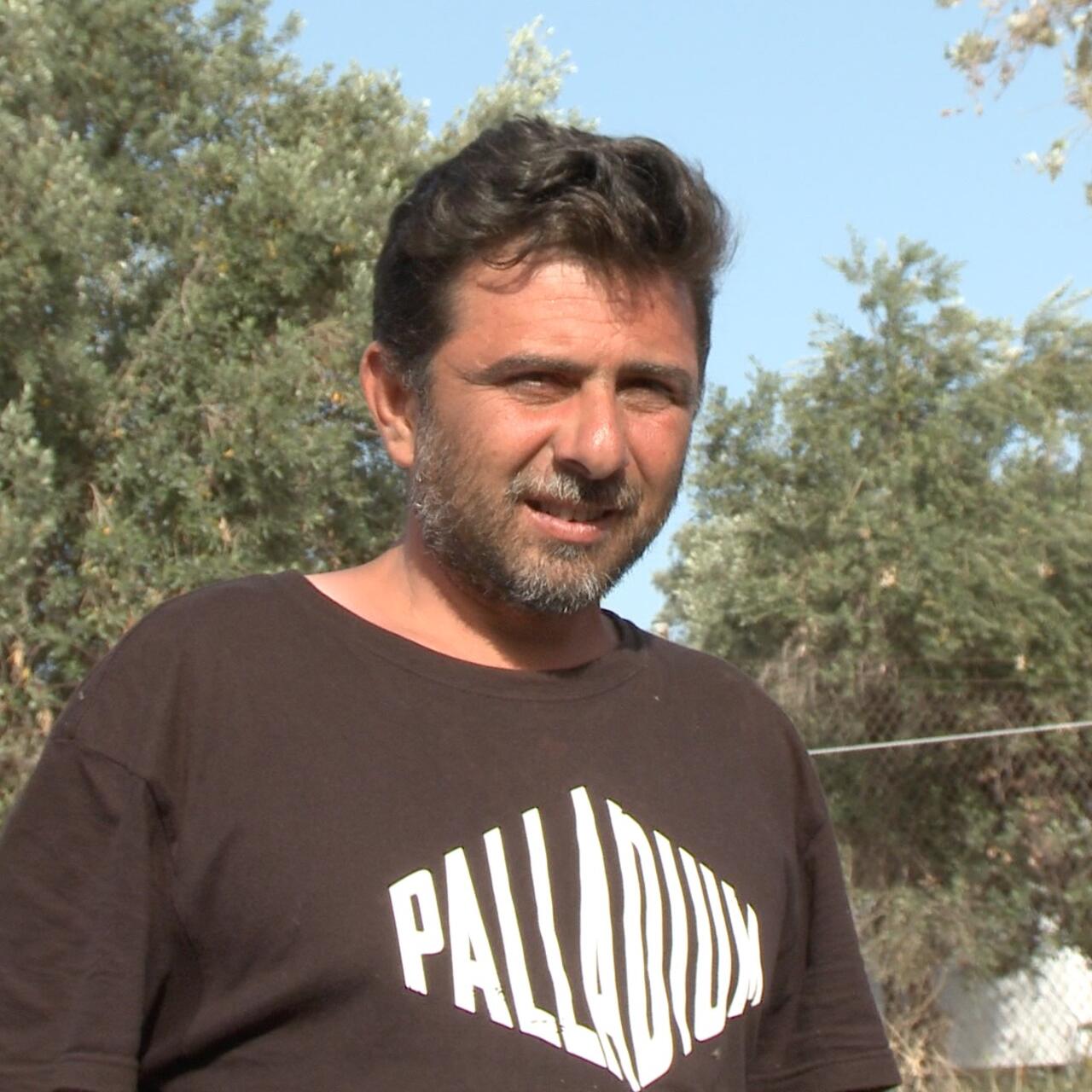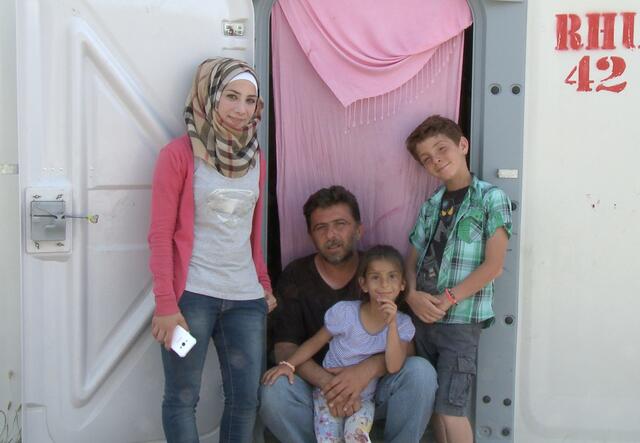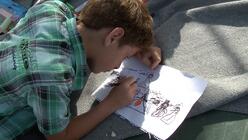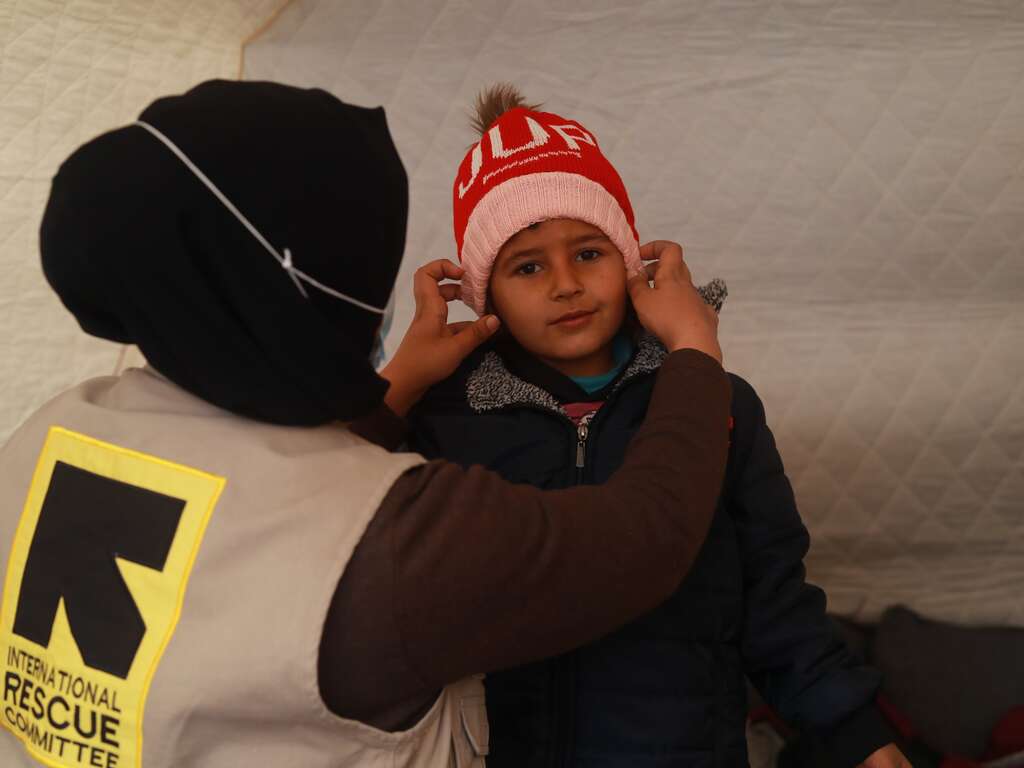
When a bomb hit the kindergarten that Muhammed’s youngest son Amr, 4, attended, his family decided it was time to leave behind their life in Aleppo in search of a place where they could be happy, safe and the children could finish their schooling.
In the chaos that ensued as they fled the city, the two cars they were travelling in were separated. The car carrying Muhammed and four of his children made it through, but the second car carrying the children’s mother and grandmother as well as Amr and the three other children was caught up in fighting and trapped in the city.
As with much of the crisis, this one moment will shape the family’s life forever.
Now facing the prospect of being a single Dad to the children, Muhammed and his four sons and daughters undertook the perilous journey across Turkey, having all of their money stolen by smugglers along the way. On their seventh attempt to cross the Aegean Sea separating Turkey and Greece, the family reached the island of Lesbos.

Their lives are now stuck in limbo as they await news about their asylum claim. “There is no hope. We are stuck here in Greece, they are stuck in Syria.” explains Nour, 16, who helps her Dad to look after her two younger siblings in Greece — Fatmi, 7, and Muhammed Jr, 10.
Back home in Syria, the family lived a normal and happy life. Muhammed owned a factory and all the children were in school. His oldest daughter, Hala, who is still back home in Syria, graduated at the top of her class and was accepted into Aleppo University to study IT Engineering. “That day was worth this whole life for me,” he says.
Working in the factory took up most of Muhammed’s time, and so the children were much closer to their Mother. Now she is a thousand kilometres away in Syria, Muhammed has been forced to play the role of two parents. “It’s a very big responsibility. I mean these kids need nurturing; I am only their Father, not their mother,” he explains.
Nour is a great help to her Dad. Every day she helps to get Fatmi ready in the morning, keeping her busy and happy while they wait and wait at Kara Tepe camp for news about their future. Kara Tepe is specially designed to cater for vulnerable refugees like Muhammed and his family. Toilets and showers provided by the International Rescue Committee ensure that there is safe and clean access to vital facilities for all refugees.
I am always trying to take care of them and help them forget the situation in Syria.”
“I was shocked when I came here. I became more tender with them; watching my words and trying to help them to forget their problems. I try to make them have fun and laugh so they can forget what they are living through.”
The family’s shared mobile phone allows them to keep up with news from their family back home in Syria as well as relatives elsewhere in Europe. For them, technology and Wi-Fi are the sole connection to the lives they left behind, as well as the lives they aspire for in Germany.

Recently when Nour spoke to her Mother via WhatsApp, Aleppo was being shelled and the family had been forced to sleep in a corridor for safety. Injured by a collapsing wall in shelling, her Mother is unable to make the journey to Europe as she is in desperate need of surgery. Her Grandmother — Nour says — is too old to travel without support. It’s no wonder that Muhammed says the children are worried and stressed all the time.
“No-one can be settled without their family,” says Muhammed. “They will always be alone wherever they go. Family for me is stability and life.”
The family hopes to reach Germany, where they have relatives and where he says, “there is no discrimination”. Muhammed hopes to learn the language quickly so he can start working, but the most important thing, he says, is that the family is all back together and that the children are back in school.
How the IRC helps
Find out more about our response to the refugee crisis.
